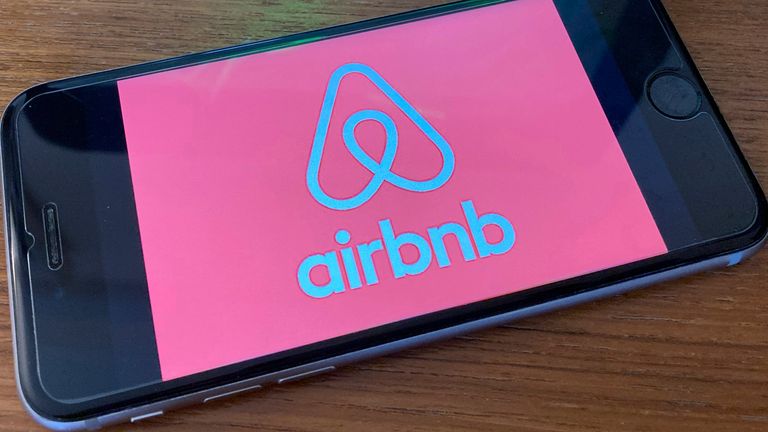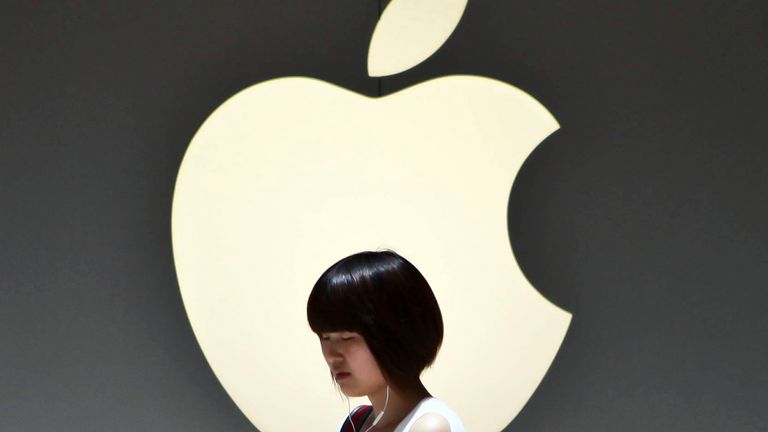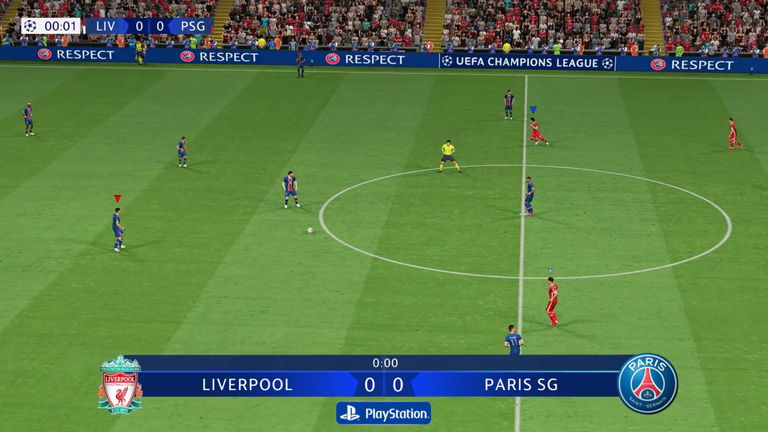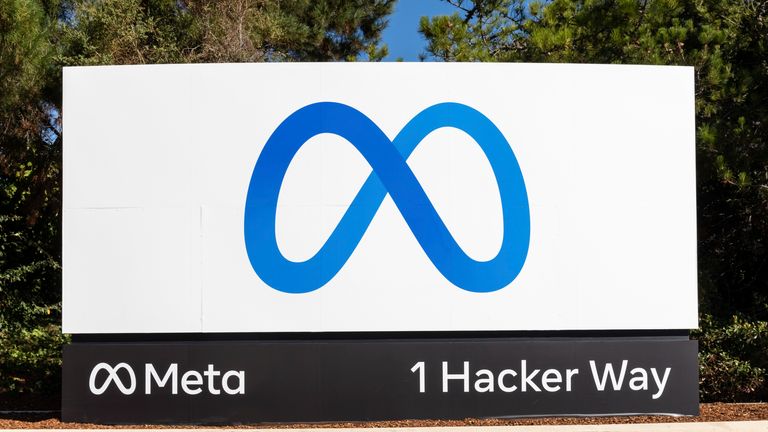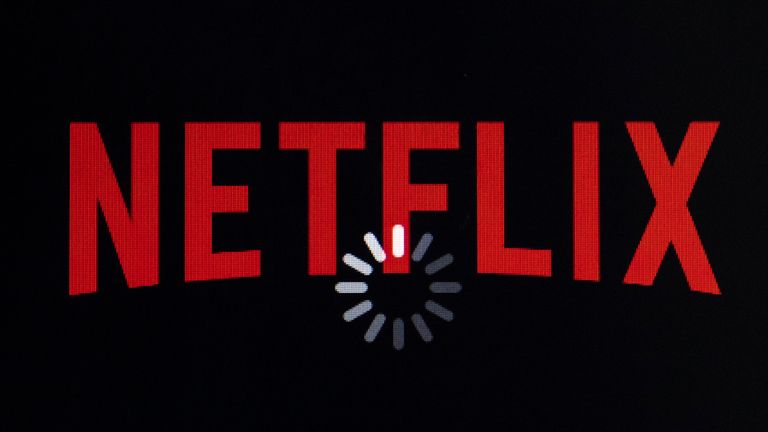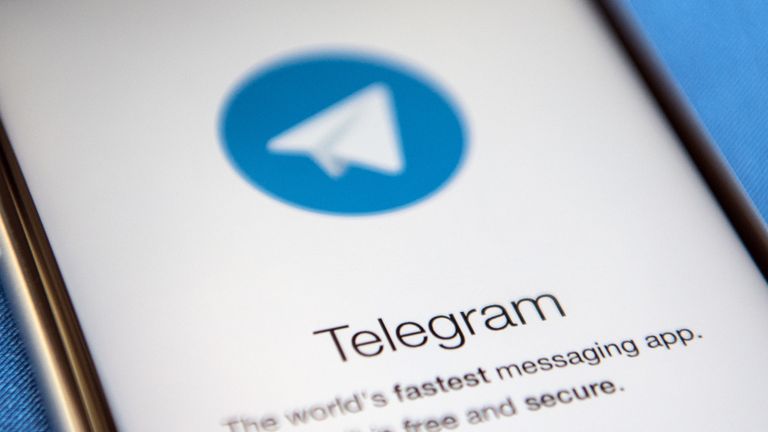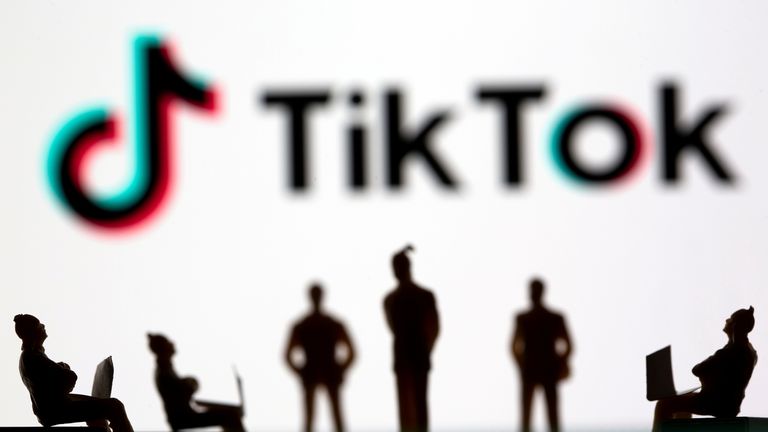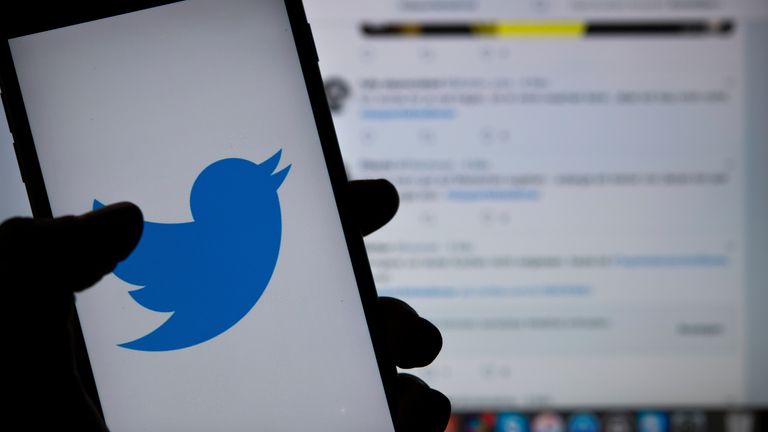How are the big tech companies responding to the invasion of Ukraine? | Science & Tech News
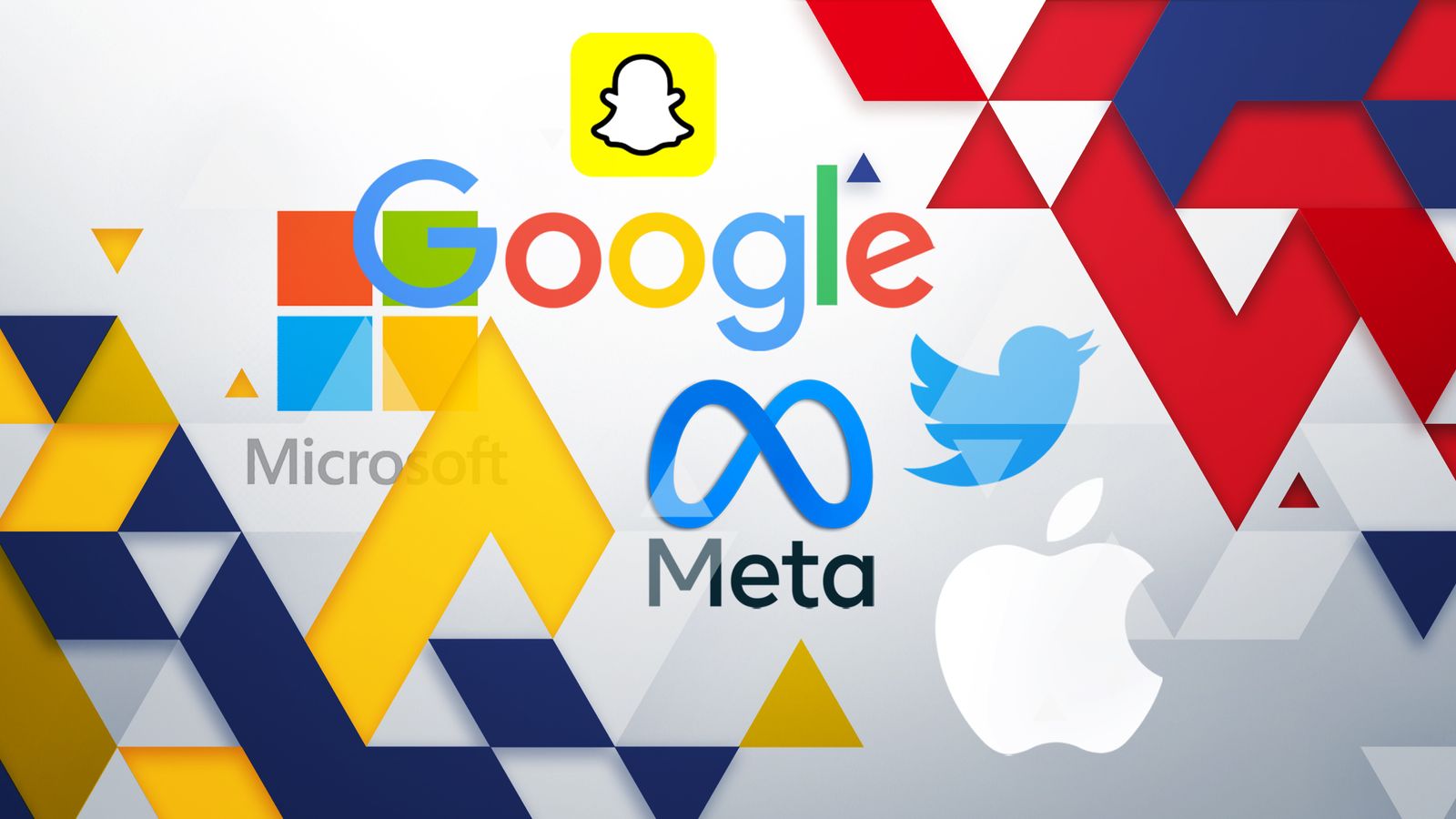
The Russian invasion of Ukraine has sparked outcry and sanctions, but the direct power to shape human destiny in the 21st Century doesn’t lie with governments alone.
From social media platforms being used for information warfare to software companies defending customers from state-sponsored cyber attacks, the invasion has highlighted how critical technology companies are in times of conflict.
They are also potential levers of influence. Ukraine’s digital minister Mykhailo Federov has called on a number of companies, including Netflix, to block their services in Russia.
Read more: Could Russia turn to cryptocurrency and cyber crime to dodge sanctions?
Many argued in response that keeping their services available was the best way to inform Russians about the invasion, but some have been pulled and others are being monitored for manipulation.
In alphabetical order, here’s how they are responding:
Airbnb
Airbnb’s chief executive Brian Chesky said the company was suspending all operations in Russia and Belarus.
Earlier this week Mr Chesky said the company would work with hosts to help house up to 100,000 Ukrainians forced to flee their homes and would waive all booking fees in the country.
He called for people “in nearby countries, including Poland, Germany, Hungary and Romania” to offer in their homes using the platform.
Apple
In a statement Apple said: “We are deeply concerned about the Russian invasion of Ukraine and stand with all of the people who are suffering as a result of the violence.”
The company said it has “paused all product sales” in Russia while “Apple Pay and other services have been limited”.
In Ukraine, the company has “disabled both traffic and live incidents in Apple Maps… as a safety and precautionary measure for Ukrainian citizens” amid concerns that Russia could attack locations where large groups were gathering.
Outside of Russia the company has removed the apps for RT and Sputnik from the App Store.
Electronic Arts
In its statement Electronic Arts, the gaming company behind the FIFA titles, said: “We stand in solidarity with the people of Ukraine.”
The company said it will stop sales of its games and content in Russia and Belarus while the conflict continues.
“We are also working with our platform partners to remove our titles from their stores and stop the sale of new in-game content in the region,” the company said.
In a statement Google said: “The Russian invasion of Ukraine is both a tragedy and a humanitarian disaster in the making.”
In Ukraine the company has updated its Search and Maps services to provide alerts to UN resources for people searching for refugee and asylum information.
Similar to Apple, the company has also disabled some live Google Maps features in the country “including the traffic layer and information about how busy places are, to help protect the safety of local communities and their citizens”.
Google said it had been taking action against “Russia-backed hacking and influence operations” for years and was continuing to automatically increase Google account security protections.
Read more: Cyber, war and Ukraine – What does recent history teach us to expect?
It said it was also providing protection against DDoS attacks for more than 100 Ukrainian websites, including local news services.
The company has blocked the YouTube channels connected to RT and Sputnik across Europe – including the UK, which is not covered by the European Union restrictions – and has banned RT from monetising its content on any of its advertising platforms.
In Russia, the company said most of its services would remain available, helping people there access global information and perspectives beyond those of state-controlled media.
Meta
Meta said: “In response to Russia’s invasion of Ukraine, our teams have been on high alert to identify emerging threats and respond as quickly as we can.”
It has blocked access to RT and Sputnik across the EU and following a request from Nadine Dorries is also blocking access to them in the UK.
Facebook and Instagram are globally demoting content from the Russian state-controlled media outlets, as well as fact-checking posts about the conflict.
Nick Clegg said Meta was facing restrictions in Russia as a result of refusing the Kremlin’s demands to stop fact-checking and labelling posts.
Meta added it has also been uncovering information warfare networks which had been operating fictitious personas and brands across the internet and taking down their accounts.
It added it is seeing “increased targeting of people in Ukraine, including Ukrainian military and public figures” by a hacking group which the security community believes has Belarussian and Russian links, and warned the hackers were sending friend requests using its social platforms.
Additional account privacy and security protections have been rolled out in Ukraine and are being added to Russia as well “in response to public reports of targeting of civil society and protesters”, the company added.
Microsoft
In its statement Microsoft said it was “following closely the tragic, unlawful and unjustified invasion of Ukraine” and was working to support humanitarian organisations.
It has stopped all new sales of products and services in Russia as of Friday.
The company said it has been and will continue to detect and advise the Ukrainian government about cyber attacks targeting the country’s digital infrastructure.
Read more: Should UK be worried about an escalating cyber conflict?
“We remain especially concerned about recent cyberattacks on Ukrainian civilian digital targets, including the financial sector, agriculture sector, emergency response services, humanitarian aid efforts, and energy sector organisations and enterprises,” the company said.
Microsoft added that it was removing the RT news apps from the Windows App Store and de-ranking RT and Sputnik on Bing, as well as banning all of their advertisements from its networks.
Netflix
In a statement a Netflix spokesperson said: “Given the circumstances on the ground, we have decided to suspend our service in Russia”
The streaming platform is estimated to have approximately a million subscribers in Russia.
A recently passed Russian law which came into effect on 1 March meant the American platform was now required to include 20 government-controlled television stations among its streaming services.
Before suspending its service, the company told Sky News: “Given the current situation, we have no plans to add these channels to our service.”
Netflix had previously launched original programming in Russia including Anna K, a contemporary retelling of Tolstoy’s Anna Karenina.
However Sky News understands that Netflix has now halted all Russian productions and acquisitions.
Snap
Snap said: “We stand in solidarity with our Ukrainian team members and the people of Ukraine who are fighting for their lives and for their freedom.”
The company’s augmented reality features are based on technology from a Ukrainian company called Looksery which it acquired in 2015 and Snap said Ukraine has been the home of more than 300 of its team members.
It said it had stopped all advertising running in Russia, Ukraine and even Belarus as a result of the conflict.
It was also halting advertising sales to all Russian and Belarusian organisations. The company said it does not accept revenue from Russian state-owned entities.
The Snapchat app will continue to be available in Ukraine, Belarus, and Russia “as it remains an important communications tool for family and friends” buy the company will continue to monitor for disinformation and other misuse.
“Ukraine is a nation whose incredible potential is helping to shape a more positive future for the world and we will not waver in our solidarity,” the company’s statement concluded.
Telegram
A spokesperson for Telegram, the social media platform founded in Russia although now legally based in the British Virgin Islands, told Sky News they were complying with the EU’s legal request to ban RT and Sputnik.
A spokesperson told Sky News: “Telegram has no companies, servers or employees in Russia.
“Telegram has been long based in the UAE and had in fact been blocked in Russia for many years. Less than 7% of Telegram’s users come from Russia,” they added.
Telegram has been involved in a range of court battles with the Russian government, but the app is still available to download and use for Russian users.
In a statement the company said it had a “multi-national team” that “includes many members from Ukraine” and aded: “We all wish for an immediate end to the conflict.”
“In these troubled times, we find consolation in the fact that our work at Telegram helps people get quick access to critical information – from verified official statements to airstrike alerts that bring civilians to safety,” it added.
TikTok
In a statement, TikTok said: “The war in Ukraine is devastating, and our hearts break for all those who are suffering.”
It said it was suspending livestreaming and new video content uploads from Russia as a result of the country’s new “fake news” law.
TikTok added that it will begin applying labels to content from some state-controlled media accounts.
The company has also banned RT and Sputnik in the EU following the legal instruction by Ursula von der Leyen.
Regarding disinformation and harmful misinformation, a spokesperson told Sky News it was continuing to monitor and dedicate “increased resources to the situation as it evolves”.
Twitter said it was “actively monitoring for risks associated with the conflict in Ukraine, including identifying and disrupting attempts to amplify false and misleading information”.
The company had already banned RT and Sputnik from running advertisements following allegations over Russian interference in the 2016 presidential election in the US.
It added that it has temporarily paused all advertisements in Ukraine and Russia.
Similarly to Meta, Twitter labels the posts of media outlets sponsored by the Russian state. The company said it was aware the site was being restricted in Russia as a result.
This included monitoring high-profile accounts, “including journalists, activists, and government officials and agencies to mitigate any attempts at a targeted takeover or manipulation”.
It has also withheld content on RT and Sputnik for users within the EU, and says outside of the EU it will “focus on de-amplifying this type of state-affiliated media content”.

